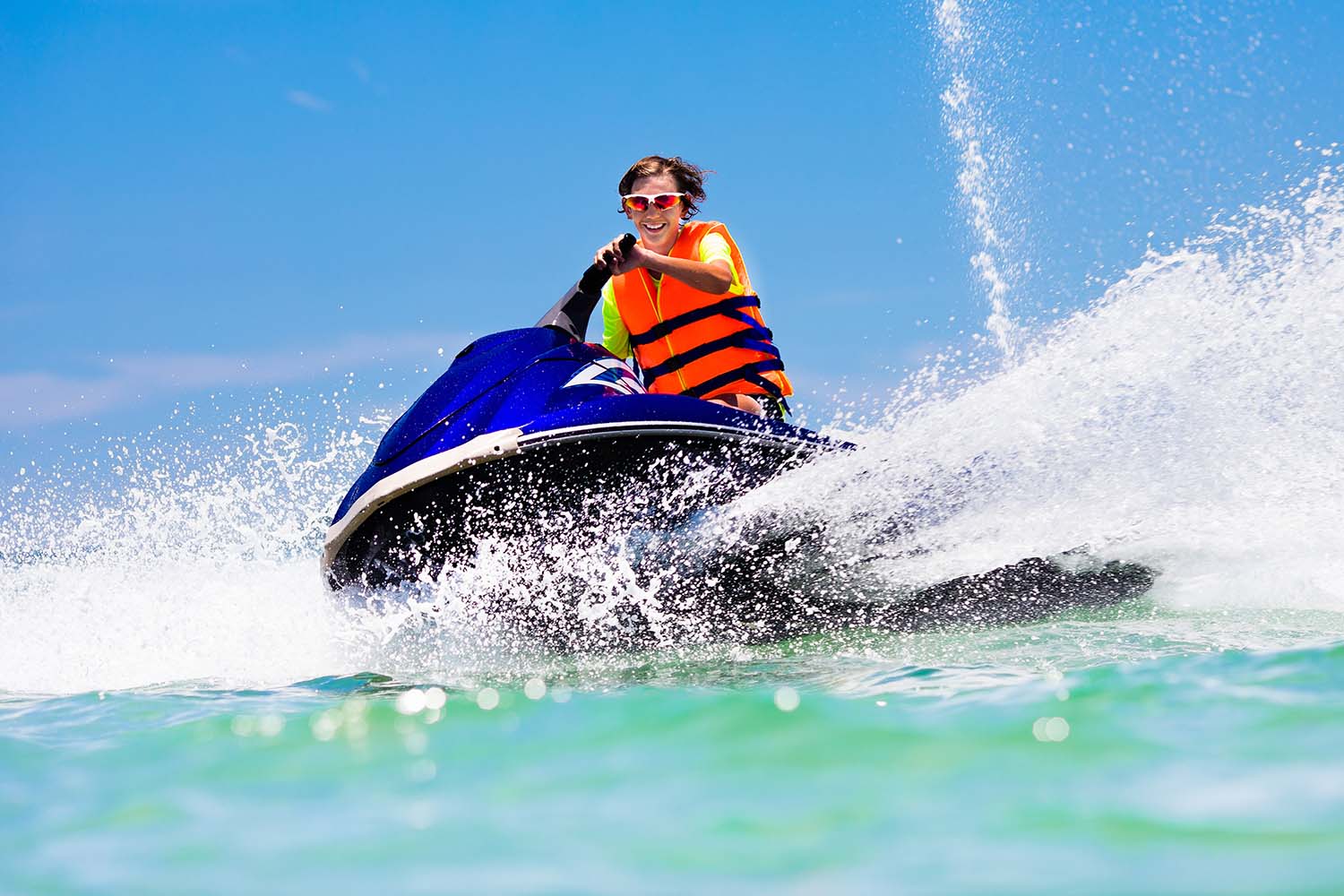If you own your personal watercraft, you’ll want to know about all the ways your personal watercraft policy allows you to stay protected, including bodily injury, property damage, and theft.
What is Personal Watercraft Insurance?
Personal watercraft insurance may cover the following:
- Bodily injury to yourself, another rider, or swimmer injured in your path
- Property damage to items such as docks, other personal watercraft, or boats
- Guest passenger liability
- Medical payments
- Theft of your personal watercraft
A typical policy will include a $250 deductible for property damage, $500 for theft, and $1,000 for medical payments. Liability starts at $15,000 and can increase to $300,000 to provide you and your family the financial protection you need in case your personal watercraft is involved in an accident.
In addition, most policies include water sports liability coverage, which provides protection when you engage in sporting activities such as waterskiing, kneeboarding, or tubing.
If you have several personal watercraft vehicles, you may qualify for a multi-boat discount. You can also purchase additional coverage for accessories and hauling trailers to keep all your bases covered.
Additional Liability Coverage
You may also want to consider purchasing a personal umbrella insurance policy connected to your homeowners or automobile insurance policy to give you additional liability protection. This coverage will provide you $1 million in additional coverage at an affordable price.
Personal Watercraft Safety Tips
Stay safe while operating your Personal Watercraft by remembering the following:
- Remain at least 100 yards behind another vessel or personal watercraft in front of you and at least 50 yards away from someone on each side to help you avoid a collision.
- Do not jump a wake created by a passing boat. In doing so, you could potentially misjudge the boat’s speed and cause a collision. The wake may also push you into the traffic path of other vehicles coming from the opposite direction.
- Be aware of your surroundings. Avoid other personal watercraft, swimmers, boats, divers, and fishers.
- We weren’t born ready to operate a personal watercraft, and most states have minimum ages for personal watercraft operators and/or boat safety education requirements. Check with your state’s boating office. A safety class is good for every age especially since Personal Watercraft accidents are often blamed on operator inexperience or inattention.
- The United States Coast Guard Boating Safety website also has great safety tips, boating quizzes, and resources.
Make sure your personal watercraft is properly protected by contacting us via the form below today. Be sure to follow us on Facebook and LinkedIn for more industry news and tips!

